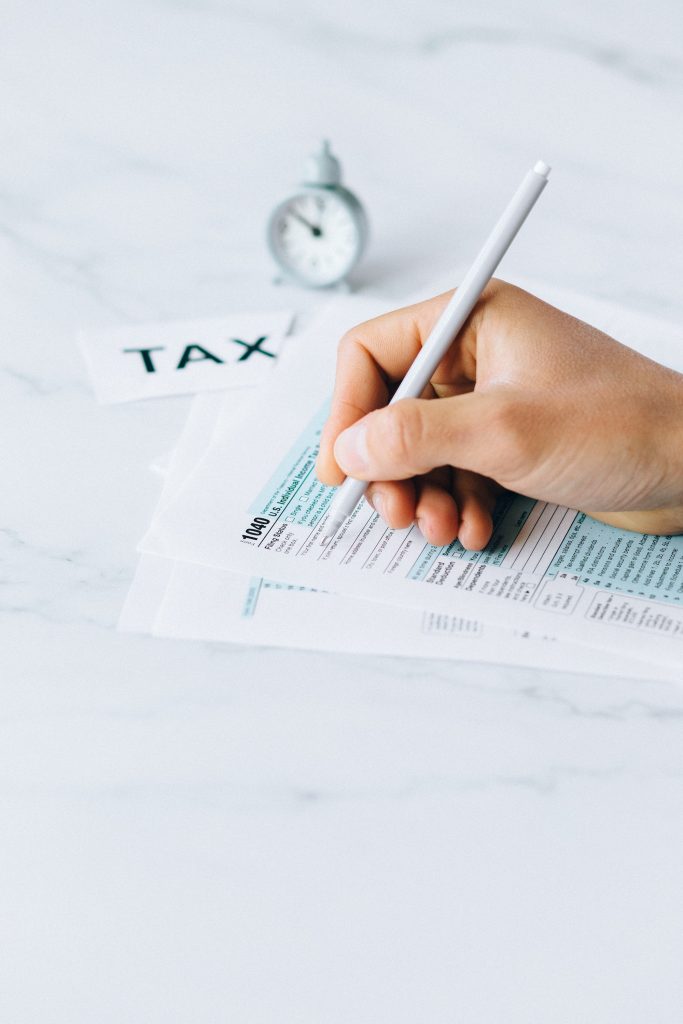Ahhhh, property taxes. The price we pay for our little pieces of paradise. Property taxes are a reality of homeownership that can often cause confusion or even stress for people, but they don’t have to! When buying a house, the key to successful financial planning is understanding what they are, how they’re calculated, and specifics related to your location.
What are Property Taxes?
Property taxes are the annual fees property owners pay to local government units, typically counties/boroughs, cities, or towns. These funds are a critical source of revenue used to finance public services like schools, roads, police and fire departments, parks, libraries, and more. Property taxes apply to all real estate types – residential, commercial, and undeveloped land.
How are Property Taxes Calculated?
The amount of property tax owed is determined by two main factors: the property’s assessed value and the local tax rate.
The assessed value is an estimate of a property’s market value – what it might sell for in the current market. Local government assessors conduct these valuations based on the property’s size, type, features, location, and, often, the recent sales of comparable properties.

The tax rate (a mill levy or millage rate) is set by various local government entities, including school districts, city, and county/borough boards, and special districts like fire protection or sanitation. A mill equals $1 of tax for every $1,000 of assessed property value. If several jurisdictions charge taxes in one area, their mill rates are added to compute the total tax rate.
Your property tax bill is calculated by multiplying the assessed value of your property (minus any exemptions) by the total tax rate.
How Are Property Taxes Collected?
Property taxes are typically due in two installments in the Mat-Su Valley. The first half is due by the end of September, and the second half is due by mid-November. Payments can be made online through the Mat-Su Borough’s website, mailed, or dropped off at the Borough building in Palmer.
However, homeowners may also opt to set up automatic payments through their bank. Your mortgage lender will typically collect property taxes as part of your monthly payment. They’ll hold the funds in an escrow account, and then they’ll pay the taxes on your behalf bi-annually. It’s a very convenient way to take care of property taxes seamlessly.
Why Are Property Taxes Often Required As Part Of Mortgage Payment?

There are several reasons that your property taxes being part of your mortgage payment are beneficial. The one most homebuyers face is the lender requirement. In many cases, mortgage lenders require property taxes to be paid as part of the mortgage payment. This is to protect the lender’s interest in the property; if property taxes are not paid, and a lien is placed on the property, it could jeopardize the lender’s investment.
That doesn’t mean it’s not convenient for you too. Property tax bills can be quite large, particularly in areas with high property values or tax rates. By spreading out these payments throughout the year, homeowners can more easily manage their cash flow and budget. It can help with budgeting. Plus, it’s one less bill to pay since your mortgage company handles the payment for you.
Additionally, Mortgage companies typically hold property tax payments in an escrow account and then pay the tax bill when it is due. This helps ensure timely payments are made, preventing late fees and potential tax liens.
Property Taxes in the Mat-Su Valley, AK
Mat-Su Valley homeowners have some specific things to know about when it comes to property taxes. Here, real property is revalued every year. This means that the assessed value of your home may change each year, and that’s based on things like renovations, changes in your home’s condition and market conditions as well.
In the Mat-Su Borough, the total mill rate in 2022 was 10.344 mills (or roughly 1.0344%). This includes taxes charged by the Borough, School District and any applicable service areas.
For example, if you own a home in the Mat-Su Borough assessed at $250,000, your annual property tax would be approximately $2,586 (250,000 * 0.010344).
There are also a couple of property exemptions that homeowners or buyers in the Mat-Su

Valley may qualify for. The Senior Citizen/Disabled Veteran Exemptions are a great advantage
Some of our property taxes here in Alaska may be higher than others due to the lack of taxes from sources like other states. We don’t have state sales tax or state income tax, and while some municipalities in Alaska have local taxes, Alaska’s overall tax burden is among the lowest in the U.S., a balance we achieve through revenues from the state’s abundant natural resources. In fact, the average effective property tax rate here is 1.31%, which is lower than the state average.
Property taxes may seem overwhelming and like ‘extra’ money that is paid as part of your mortgage, but when you understand how they’re calculated and what they’re used for, it’s easier. When you’re looking at homes to buy, that’s one of the things you’ll want to consider, and knowing how to calculate them and that they’re often paid automatically as part of your mortgage payment can take a lot of the pressure off!




Leave a Reply